NAFLD causes selective CD4(+) T lymphocyte loss and promotes hepatocarcinogenesis
- PMID: 26934227
- PMCID: PMC4786464
- DOI: 10.1038/nature16969
NAFLD causes selective CD4(+) T lymphocyte loss and promotes hepatocarcinogenesis
Abstract
Hepatocellular carcinoma (HCC) is the second most common cause of cancer-related death. Non-alcoholic fatty liver disease (NAFLD) affects a large proportion of the US population and is considered to be a metabolic predisposition to liver cancer. However, the role of adaptive immune responses in NAFLD-promoted HCC is largely unknown. Here we show, in mouse models and human samples, that dysregulation of lipid metabolism in NAFLD causes a selective loss of intrahepatic CD4(+) but not CD8(+) T lymphocytes, leading to accelerated hepatocarcinogenesis. We also demonstrate that CD4(+) T lymphocytes have greater mitochondrial mass than CD8(+) T lymphocytes and generate higher levels of mitochondrially derived reactive oxygen species (ROS). Disruption of mitochondrial function by linoleic acid, a fatty acid accumulated in NAFLD, causes more oxidative damage than other free fatty acids such as palmitic acid, and mediates selective loss of intrahepatic CD4(+) T lymphocytes. In vivo blockade of ROS reversed NAFLD-induced hepatic CD4(+) T lymphocyte decrease and delayed NAFLD-promoted HCC. Our results provide an unexpected link between lipid dysregulation and impaired anti-tumour surveillance.
Figures
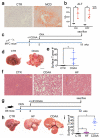


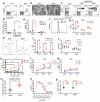
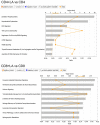
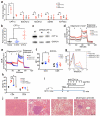
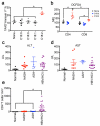
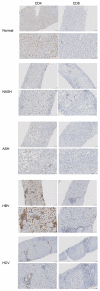


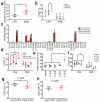
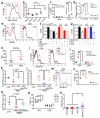
Comment in
-
CD4+ T Cell Loss Drives NAFLD Progression to Hepatocellular Carcinoma.Cancer Discov. 2016 May;6(5):OF8. doi: 10.1158/2159-8290.CD-RW2016-046. Epub 2016 Mar 17. Cancer Discov. 2016. PMID: 26988666
-
NAFLD: Loss of CD4(+) T cells in HCC.Nat Rev Gastroenterol Hepatol. 2016 Apr;13(4):190. doi: 10.1038/nrgastro.2016.47. Epub 2016 Mar 16. Nat Rev Gastroenterol Hepatol. 2016. PMID: 27006250 No abstract available.
-
Fatty Acid-Induced T Cell Loss Greases Liver Carcinogenesis.Cell Metab. 2016 May 10;23(5):759-61. doi: 10.1016/j.cmet.2016.04.018. Cell Metab. 2016. PMID: 27166937
-
Hepatocellular carcinoma in nonalcoholic fatty liver disease: A link between oxidative stress and T-cell suppression.Hepatology. 2016 Nov;64(5):1794-1797. doi: 10.1002/hep.28815. Hepatology. 2016. PMID: 27629157 No abstract available.
-
Immune surveillance of liver cancer in non-alcoholic fatty liver disease: excess lipids cause CD4 T-cells loss and promote hepatocellular carcinoma development.Hepatobiliary Surg Nutr. 2016 Oct;5(5):433-437. doi: 10.21037/hbsn.2016.09.10. Hepatobiliary Surg Nutr. 2016. PMID: 27826559 Free PMC article. No abstract available.
-
Inflammation, mitochondrial metabolism and nutrition: the multi-faceted progression of non-alcoholic fatty liver disease to hepatocellular carcinoma.Hepatobiliary Surg Nutr. 2016 Oct;5(5):438-443. doi: 10.21037/hbsn.2016.09.11. Hepatobiliary Surg Nutr. 2016. PMID: 27826560 Free PMC article. No abstract available.
-
Comments on "NAFLD causes selective CD4+ T lymphocyte loss and promotes hepatocarcinogenesis".Hepatobiliary Surg Nutr. 2016 Dec;5(6):509-510. doi: 10.21037/hbsn.2016.12.02. Hepatobiliary Surg Nutr. 2016. PMID: 28124010 Free PMC article. No abstract available.
-
New players in non-alcoholic fatty liver disease induced carcinogenesis: lipid dysregulation impairs liver immune surveillance.Hepatobiliary Surg Nutr. 2016 Dec;5(6):511-514. doi: 10.21037/hbsn.2016.11.08. Hepatobiliary Surg Nutr. 2016. PMID: 28124011 Free PMC article. No abstract available.
References
Additonal References for Methods
-
- Radaeva S, et al. Interferon-alpha activates multiple STAT signals and down-regulates c-Met in primary human hepatocytes. Gastroenterology. 2002;122:1020–1034. - PubMed
Publication types
MeSH terms
Substances
Associated data
- Actions
Grants and funding
LinkOut - more resources
Full Text Sources
Other Literature Sources
Medical
Molecular Biology Databases
Research Materials

